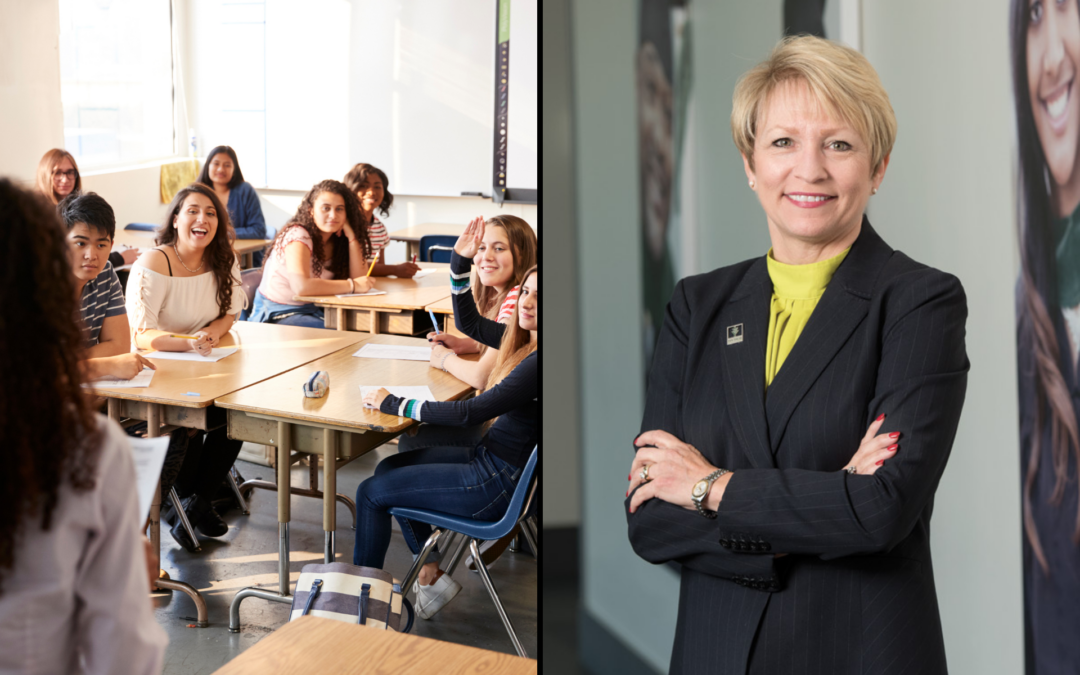Dr. Sue Ellspermann, President, Ivy Tech Community College
As workforce demands evolve, the need for accessible, career-focused education has never been more critical. To remain competitive in a global economy, states must ensure that education and workforce development are not separate paths, but rather interconnected avenues to success.
Across the country, forward-thinking states are leveraging early college programs, dual enrollment opportunities, and work-based learning experiences to bridge the gap between high school, higher education, and employment. Indiana has emerged as a leader in this space, demonstrating how intentional partnerships between K-12 education, postsecondary institutions, and industry can produce a highly skilled workforce ready to meet employer needs.
Last year, more than 91,000 Indiana high school students took coursework through Ivy Tech Community College, Indiana’s singly accredited statewide system. Many of these students earned certificates, industry certifications, their first year of college (Indiana College Core), and even associate degrees – saving students and their families more than $113 million on tuition alone. These programs not only reduce the cost of higher education but also increase its return on investment (ROI), allowing students to graduate with less debt, complete their degrees faster, and enter the workforce with in-demand skills.
Beyond accelerating degree completion, dual credit and dual enrollment programs create direct pipelines to industry-aligned credentials and high-demand career pathways. Nearly 6,000 Indiana high school students completed industry certifications last year while still in high school, positioning them for immediate employment opportunities while keeping the door open for further education through stackable credentials. Expanding on this success, Indiana is scaling youth apprenticeships modeled after the Swiss system, allowing students to gain hands-on experience in fields like healthcare, banking, advanced manufacturing, IT, and construction. Through paid apprenticeships, juniors and seniors will spend part of their week working in real-world settings while earning credentials that count toward both their high school diploma and postsecondary degrees.
Education remains one of the most powerful tools for social mobility. By ensuring all students—regardless of background—have access to early college credits, workforce credentials, and apprenticeships, we are creating opportunities for economic mobility and lifelong career success. These programs benefit all students, including those that are headed into traditional higher education and those who might not have otherwise considered postsecondary education at all.
This is not just an academic achievement; it is an economic imperative. As automation, artificial intelligence, and emerging industries continue to reshape labor markets, the nation’s educational systems must evolve in tandem to ensure students are prepared for the jobs of the future. Indiana’s high school redesign is one example of how states can provide greater flexibility for students to complete their first year of college, earn industry credentials, and gain meaningful work experience — all before graduating high school. This approach ensures that every student has a relevant, personalized pathway to success, whether through employment, military service, or further education.
Implementing these changes requires collaboration among higher education institutions, K-12 educators, policymakers, and employers. We recognize the challenges that come with adapting to new models, but the benefits far outweigh the growing pains. By maintaining permeability in our education system — allowing students to move seamlessly between education and the workforce as circumstances evolve — we can build a stronger, more agile workforce. If we “blur the lines,” we can ensure high value outcomes for students, employers, and communities.






Recent Comments